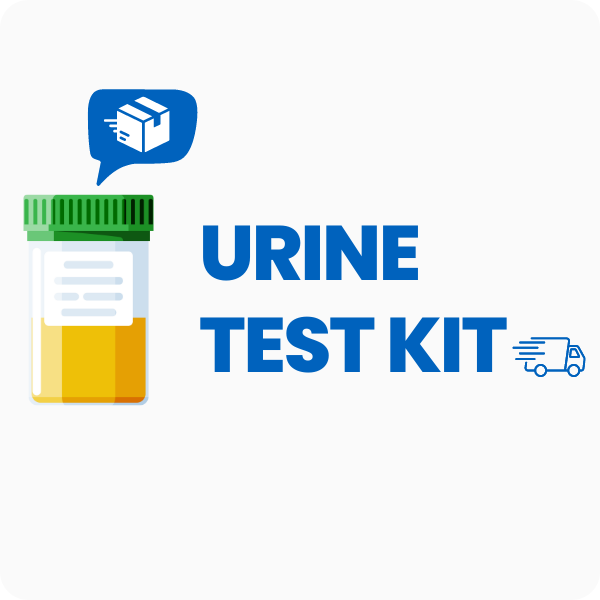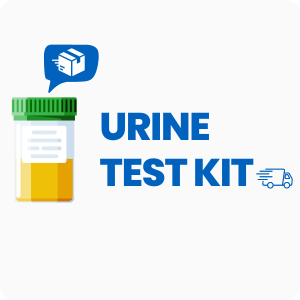Ordering the NeuroBasic Profile | 24-hr Urine | Doctor’s Data | Canada
Ordering the NeuroBasic Profile | 24-hr Urine | Doctor’s Data helps check for imbalances in brain chemicals that can affect mood, focus, and sleep. This test measures neurotransmitters in a 24-hour urine sample, giving a full picture of how your body makes and breaks down these important messengers. Interestingly, neurotransmitter levels in urine can reflect changes in both the brain and the gut, showing how closely these systems are linked.
When ordering this test, you can expect these specific benefits:
- Measures dopamine, serotonin, and other neurotransmitters to help pinpoint causes of mood changes or brain fog.
- Assesses stress-related chemicals like norepinephrine and epinephrine to help explain fatigue or trouble sleeping.
- Checks for imbalances that may be linked to headaches, chronic pain, or memory problems.
- Helps guide treatment for issues like anxiety, depression, or attention problems by showing which neurotransmitters are out of range.
- Provides a baseline for tracking changes after starting new therapies or supplements.
Who Should Consider Neurotransmitter and Brain Chemical Testing
People who have ongoing trouble with focus, mood swings, or sleep that does not improve with simple changes may benefit from this test. For example, someone who feels tired all day, struggles to remember things, and has frequent headaches might find answers by checking their neurotransmitter levels.
Ordering this test may also be helpful in these situations:
- Feeling anxious or down for weeks, even with regular exercise and a balanced diet.
- Having trouble falling asleep or staying asleep most nights.
- Dealing with muscle pain or migraines that do not respond to usual treatments.
- Noticing sudden changes in memory, focus, or energy without a clear reason.
- Experiencing strong food cravings or new sensitivities to certain foods, which can sometimes be linked to neurotransmitter shifts.
Testing for neurotransmitter imbalances can help explain symptoms like brain fog, low energy, or mood changes by showing which brain chemicals are out of range. Delaying this test could mean missing the chance to start targeted support sooner, which may help improve symptoms more quickly.
Preparing for Urine Neurotransmitter Testing
Fasting is not required for this 24-hour urine test, but you should avoid collecting the sample during menstruation if possible. Always follow any instructions your doctor or healthcare provider gives you to make sure your sample is collected the right way and your results are as useful as possible.
Labs Included When Ordering Your NeuroBasic Profile | 24-hr Urine | Doctor’s Data
| Test Name | Reference Range | What This Marker Means | Low and High Levels of This Marker |
|---|---|---|---|
| Catecholamine Fractionation, free | Dopamine: 125-250 Epinephrine: 2-24 Norepinephrine: 15-80 |
Catecholamines are stress-related chemicals that help control mood, energy, and the body’s response to stress. This test breaks down dopamine, norepinephrine, and epinephrine for a detailed look at stress and mood balance. |
High levels mean the body may be under stress, or there could be an overactive stress response.
Low levels mean there may be low energy, poor focus, or trouble handling stress. |
| Creatinine | 0.5-2.5 | Creatinine is used to check if the urine sample is concentrated enough for accurate testing. It helps make sure the results for other markers are correct. |
High levels mean the urine is very concentrated, which can affect test results.
Low levels mean the urine is too diluted, which may make results less clear. |
| Dopamine, free | 125-250 | Dopamine is a brain chemical that helps with motivation, focus, and feeling pleasure. It also plays a role in movement and learning. |
High levels mean there may be too much stimulation, restlessness, or trouble relaxing.
Low levels mean there may be low motivation, poor focus, or feeling down. |
| Epinephrine, free | 2-24 | Epinephrine, also called adrenaline, is released during stress and helps the body react quickly. It affects heart rate, energy, and alertness. |
High levels mean the body may be in a constant state of stress or anxiety.
Low levels mean there may be fatigue or a slow response to stress. |
| Gamma-aminobutyrate (GABA) | 100-400 | GABA is a calming brain chemical that helps control anxiety, sleep, and muscle tension. It balances out excitatory signals in the brain. |
High levels mean there may be too much calming, leading to drowsiness or low motivation.
Low levels mean there may be anxiety, restlessness, or trouble sleeping. |
| Glutamate | 10-100 | Glutamate is an excitatory brain chemical that helps with learning and memory. It needs to be balanced with calming chemicals like GABA. |
High levels mean there may be overstimulation, headaches, or trouble focusing.
Low levels mean there may be poor memory or slow thinking. |
| Glycine | 100-400 | Glycine is a calming amino acid that helps with sleep, mood, and muscle control. It also supports the body’s detox process. |
High levels mean there may be too much calming, leading to sluggishness.
Low levels mean there may be trouble sleeping or feeling tense. |
| Histamine | 15-50 | Histamine is involved in immune response, allergies, and brain function. It can affect mood, alertness, and inflammation. |
High levels mean there may be allergies, headaches, or mood swings.
Low levels mean there may be low alertness or trouble with focus. |
| Norepinephrine, free | 15-80 | Norepinephrine is a stress chemical that helps with focus, alertness, and the body’s “fight or flight” response. It works closely with dopamine and epinephrine. |
High levels mean there may be anxiety, high blood pressure, or trouble relaxing.
Low levels mean there may be low energy, poor focus, or feeling down. |
| Phenethylamine (PEA) | 50-300 | PEA is a natural stimulant that helps with mood, attention, and energy. It is sometimes called the “feel-good” chemical. |
High levels mean there may be restlessness or trouble calming down.
Low levels mean there may be low mood or poor attention. |
| Serotonin | 100-225 | Serotonin is a brain chemical that helps with mood, sleep, and appetite. It is often called the “happiness” chemical. |
High levels mean there may be agitation, sweating, or trouble sleeping.
Low levels mean there may be sadness, anxiety, or trouble sleeping. |
Reference ranges may change slightly as labs update their methods and guidelines.
NeuroBasic Profile FAQ
Is there NeuroBasic Profile testing near me?
This is a test kit you can use at home, and you can collect your urine sample locally—check the draw location link at the top of the page. For people dealing with ongoing fatigue, mood changes, or brain fog, having a convenient way to collect your sample can make it easier to get answers without extra travel or stress.
How do I interpret the test results?
While your treating physician should help you understand your results, we also offer a one-on-one test results review with our clinical team to help you make sense of your report.
What is the cost of the test?
The price you see for this test includes standard shipping to you and return shipping to the lab, but draw fees may apply. Ordering this test can help you find out if neurotransmitter imbalances are causing symptoms like fatigue or trouble focusing, so you can start targeted support sooner.
How often should I retest?
Retesting is usually recommended every 3 to 6 months, especially if you are starting new treatments or making changes to your routine. This helps track how your neurotransmitter levels respond and guides any needed adjustments.
How accurate is the test?
This test uses high-performance liquid chromatography with electrochemical detection (HPLC-ECD), which is known for its precision in measuring neurotransmitters in urine. The specificity is 98% and the sensitivity is 97%. TrueHealthLabs.com partners with CLIA-certified and CAP-certified laboratories to uphold rigorous testing standards for dependable results.
Important Notes
- The test kit cannot be mailed or collected in New York. Contact us with questions.
Medical Review Board
Reviewed by Jeff Donohue M.D. from Body Logic and Brady Hurst DC, CCCN. Written by True Health Lab’s team of editorial health contributors.
Disclaimer: This information is for educational purposes only and not intended as medical advice. Consult your healthcare provider for personalized guidance.
Why Customers Trust True Health Labs – What People are saying
Also rated 4.6 out of 5 based on 3452 ShopperApproved reviews- See all TrueHealthLabs.com reviews.










